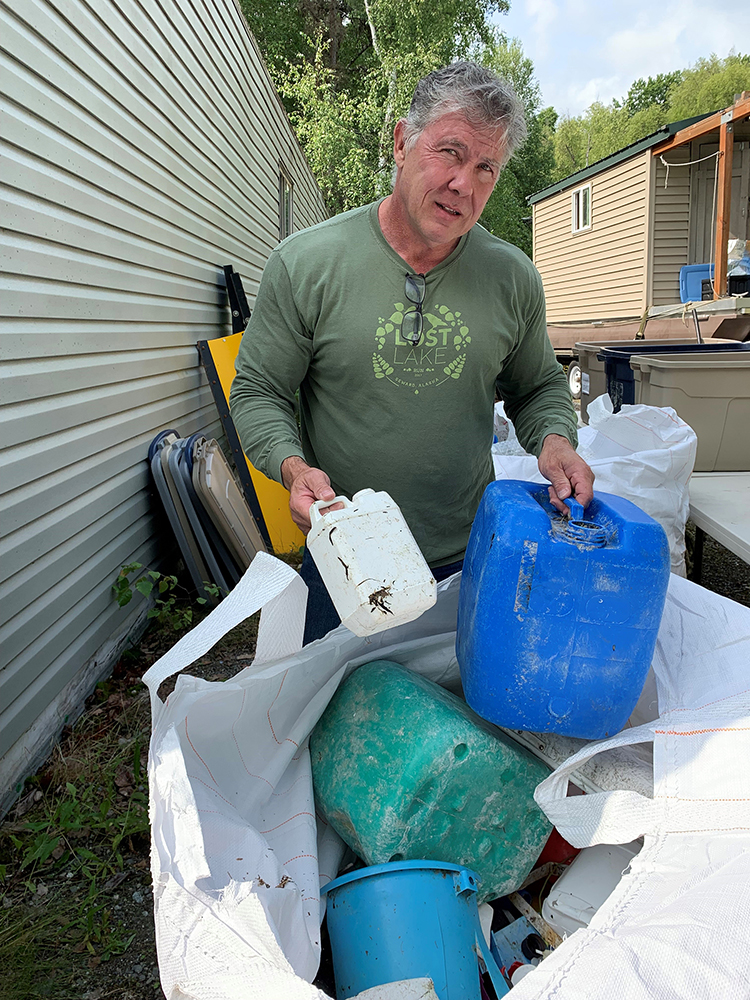
Mounds of plastic waste polluting the ocean and washing up on Alaska’s coastal shores will see new life as plastic construction materials in a plan Patrick Simpson has devised, right down to conversion into plastic lumber and bricks in rural fishing communities.
For nearly 30 years, Simpson has used knowledge honed from an education in computer science at the University of California, San Diego to tackle needs of the commercial fishing industry, from sonar systems for fisheries stock assessment and monitoring marine mammals to producing food grade wild Alaskan salmon oil.
Then in 2005, Simpson, who grew up in a fishing family in Cordova, Alaska, became focused on the prospect of turning vast quantities of myriad plastics polluting the ocean and washing up on rural Alaska shores into construction materials that could be produced and used in rural communities.
His Anchorage-based firm, PKS Consulting Inc., focused on designing, developing, demonstrating and operating solutions to convert plastic waste into plastic lumber and plastic brinks, construction materials that could again be recycled, giving them several more lifetimes of use.
His efforts as Alaska Plastic Recovery LLC, benefitting the environment and rural fishing communities alike, were recognized in January by the Alaska SeaLife Center in Seward, which honored Simpson with the Stewardship and Sustainability Award, for an industry leader who demonstrates the highest commitment to sustainability of ocean resources.
The award, presented during the ASLC’s Alaska Ocean Leadership Awards gala in Anchorage, cited Simpson for making possible cleaner beaches and oceans, and for reducing microplastics in marine ecosystems, which have had a serious adverse impact on fish and marine mammals.
By Simpson’s calculations, 75 to 125 million pounds of plastic ocean waste accumulate annually on Alaska shores.
The cost of barging trash to the Lower 48 states is prohibitive. Some rural communities are struggling with overflowing landfills. As a solution, Simpson proposes to barge equipment to rural communities to repurpose all this garbage into durable bricks and lumber with multiple applications from decks, fences and retaining walls to outdoor furniture, flower boxes, piers, pilings and seawalls.
For his research and demonstration projects, Simpson has received several grants from the U.S. Environmental Protection Agency. This year his plan is to complete testing with a 53-foot trailer in Seward, Soldotna and Palmer, Alaska.
Then, in 2024, he plans to repackage the trailer into three 20-foot containers and add additional processing capability to produce recycled plastic bricks from certain plastics and do pilot demonstrations in Sitka and Yakutat, plus Hoonah, Wrangell, Petersburg and Ketchikan, with additional pilot demonstrations in Southeast Alaska in 2025.
